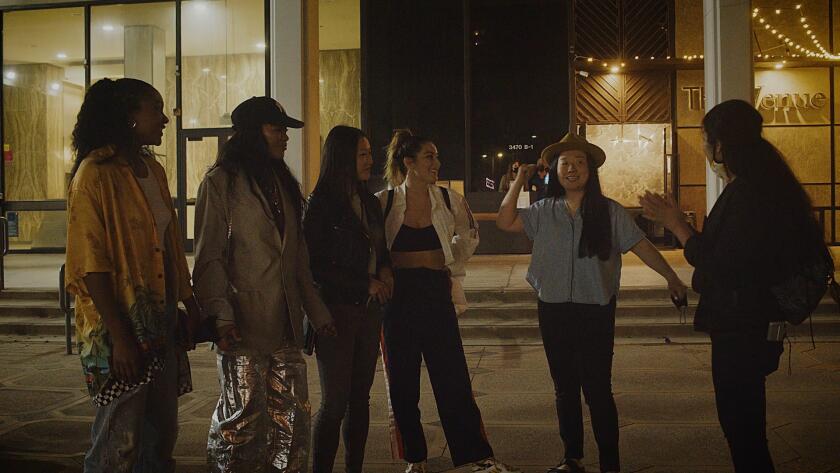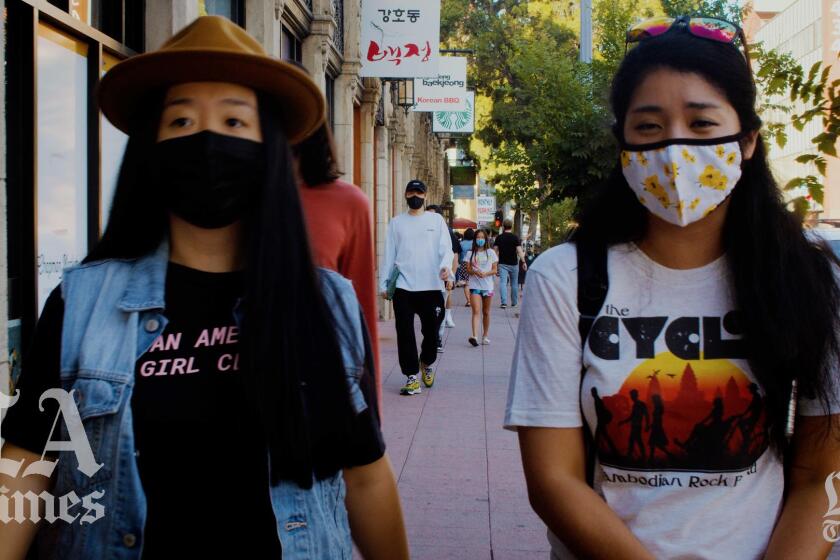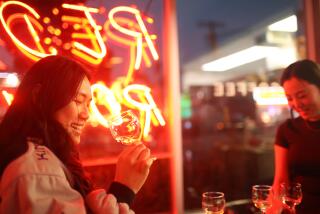What is karaoke like now? Navigating L.A.’s reopening with ‘Good Trouble’s’ Sherry Cola
- Share via
Singing in groups was identified early in the pandemic as a risky activity. But now that vaccinations are rising, what is it like to go to karaoke in Koreatown with a group of friends?
- Share via
Early in the pandemic, a choir practice in Washington turned deadly when 45 out of 60 singers were infected, despite using hand sanitizer and staying distanced.
Emily Oster, a Brown University economist who has been studying COVID-19 data, said that the story taught us lessons about the airborne spread of the virus.
To better understand what karaoke is like now, we took actress and comedian Sherry Cola (“Good Trouble”) and her friends to The Venue before California’s regulations were relaxed June 15. The Venue is a restaurant in Koreatown with 13 private karaoke rooms. We also asked experts about any risks associated with karaoke.
“When you’re yelling, singing or forcibly expelling air, your droplet particles can move farther,” said Dr. Catherine Le, an infectious disease physician who heads Cedars-Sinai Medical Center’s COVID-19 Recovery Program and wrote the children’s book “Coronavirus Is Boo Boo.”
“Singing is higher risk than a buffet,” Oster said, “but again, it depends on your environment, and the chances of someone in Los Angeles coming into a karaoke bar with COVID is low.”
COVID-19 rates in L.A. are close to where they were in February 2020 and vaccination rates are high.
Numbers, variants and vaccines
Private karaoke, which is closer to the risk of having an indoor dinner with friends you know and trust, is safer than a karaoke bar, where you sing onstage and are sharing space with strangers whose vaccination statuses you don’t know.
But even at a karaoke bar, vaccinated people don’t need to worry about getting infected by people who were previously singing on stage.
Though Le and Oster don’t believe the microphone is a huge risk for COVID, they generally recommended wiping down microphones if you don’t know the person who used it before you.
“It’s almost like having a drink,” Le said. “It’s right up there, right against your mouth.”
“I’m having a lot of non-COVID feelings,” Oster said. “Always wipe the microphone, for reasons that are not about coronavirus.”
We consulted experts before going to Koreatown with actress and comedian Sherry Cola of “Good Trouble.” We learned about how to make decisions and mitigate risk of coronavirus and other germs while going to a spa, a Korean barbecue restaurant and karaoke with friends.
The Venue provides foam covers for its microphones, said Sarah Bennet, general manager of the restaurant. Other precautions adopted include full-body temperature checks, a contactless menu, extra sanitizing procedures in between guests and a hand sanitizer bottle for each room.
Masks are still required for customers who are not fully vaccinated, and vaccination cards are required for parties of more than 30 guests, Bennett said.
Things to keep in mind in a reopened California
More to Read
Sign up for Essential California
The most important California stories and recommendations in your inbox every morning.
You may occasionally receive promotional content from the Los Angeles Times.













